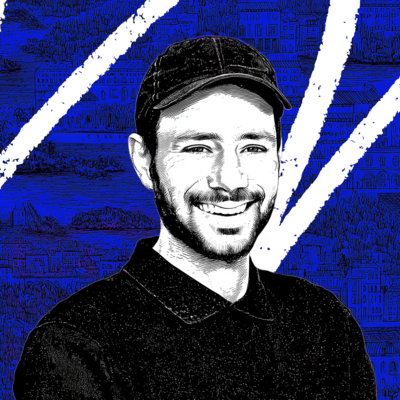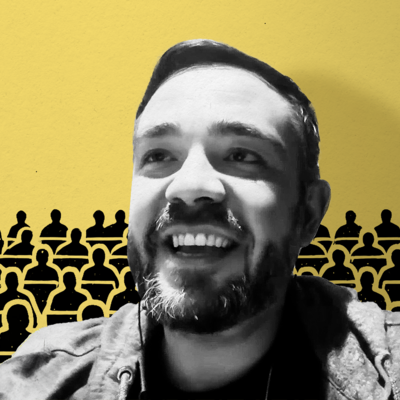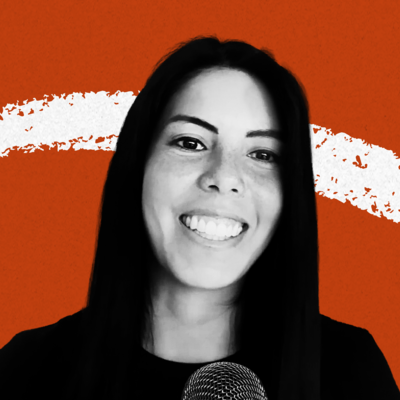.48.05_AM.png)
TL;DR: Today we’re releasing a new episode of our podcast AI & I. Dan Shipper goes in depth with Alan Lightman, physicist, bestselling author, and professor of the practice of humanities at the Massachusetts Institute of Technology. Watch on X or YouTube, or listen on Spotify or Apple Podcasts. Here’s a link to the episode transcript.
Was this newsletter forwarded to you? Sign up to get it in your inbox.
OpenAI released native image generation in ChatGPT nine days ago. In that time, Studio Ghibli images have flooded the internet, prompting a lot of talk about what it means to be creative in the age of AI.
The intense debate around creativity is rooted in our perception of creativity being a uniquely human quality—something LLMs’ new capabilities are making us think twice about. At the heart of the debate is the question of how AI changes what it means to be human. Dan Shipper’s guest in this episode of AI & I, Alan Lightman, is well-placed to explore this.
Lightman is a bestselling novelist, essayist, physicist, and educator. He’s currently a professor of the practice of humanities at the Massachusetts Institute of Technology (MIT). His latest book, The Miraculous From the Material, is an investigation of natural phenomena from spiderwebs to lightning bolts. Each chapter opens with a striking photograph, followed by an essay that weaves together scientific explanation with Lightman’s intimate personal reflections, inviting readers to experience both the analytical and spiritual parts of the world around us.
Lightman was one of the first at MIT to hold a joint faculty position in both the sciences and the humanities, and the ease with which he straddles both worlds makes this one of my favorite episodes of the podcast. Dan and Lightman get into the delicate balance between scientific explanation and personal wonder, the mystery of consciousness and whether AI could ever truly experience it, and our possible evolution toward a future where humans merge with machines in ways that force us to reckon with our perception of ourselves.
You can check out their full conversation here:
If you want a quick summary, here are some of the themes they touch on:
Science can deepen, not diminish, your sense of the spiritual (00:02:36)
In 1865, Walt Whitman published an eight-line poem about a person who listens to a lecture about astronomy—full of proofs, figures, charts, and diagrams—only to step outside and look up in “perfect silence at the stars.” There is a suggestion in Whitman’s words that our search for explanations about celestial bodies like stars can take away from the simple wonder of experiencing them. (I enjoyed reading the poem; you can check it out for yourself.)
The Miraculous From the Material is in a sense a counterpoint to Whitman’s poem. Lightman argues that knowing the scientific basis of natural phenomena like spiderwebs, bubbles, and volcanoes doesn’t make them any less awe-inspiring. Lightman tells Dan he believes that the “direct experience of the world” and the “scientific explanation for it” are “mutually enriching.” He calls himself a “spiritual materialist,” explaining that “the materialist part of that is my scientific side, which understands everything in terms of atoms and molecules and the law of conservation of energy… but I’m also open to… spiritual experiences like feeling part of something larger than myself, or the appreciation of a waterfall or a sunset.”
Lightman on the puzzle of how neurons give rise to consciousness (00:11:31)
Since Lightman believes in materialism—the view that all phenomena can be explained in terms of physical laws—Dan asks him about the mystery of consciousness: It indisputably exists, but science is yet to explain how it arises from the activities of neurons in our brains.
According to Lightman, consciousness is a feeling—“a name we give to a certain sensation caused by 100 billion neurons”—that arises from activity in our brains, which are tangible, material things. He says, “I think that all mental sensations are rooted in that, but we don’t yet understand how you get from that material basis to the feeling that we call consciousness.”
AI isn’t conscious, but it can appear to be (00:13:11)
Lightman says that while AI will eventually display aspects of consciousness—like the ability to plan for the future—whether the computer is actually conscious is a different question. It’s a line of thought that reminded me of an experiment called the Chinese room, involving a person who follows instructions to manipulate Chinese symbols without understanding their meaning but, to an outsider, could appear to “understand” Chinese. The thought experiment makes a distinction, as Lightman does, between machines following rules to arrange words or symbols, and truly understanding their meaning.
Consciousness is not a binary phenomenon, he says; it exists on a spectrum. Like a human hand that reflexively jerks away from a flame or an amoeba that moves to avoid toxic chemicals poured next to it, he explains that the reactions differ because “with humans, when you have pain, you’re self-aware of having pain… There's not only sensing certain things, but it's actually aware that it's sensing.” Even his computer would react to very hot temperatures by shutting down certain functionalities, but that doesn’t mean it exhibits consciousness.
Man and machine: a future that blurs the lines between biology and technology (00:37:01)
According to Lightman, humans have developed technologies—like eyeglasses and hearing aids—that have allowed us to thrive, regardless of the natural selection pressures that would have eliminated our ancestors. We are, he suggests, “evolving by our own hand” through new technologies, with AI representing the latest example.
Lightman visualizes a future where we become “homo techno,” or hybrid organisms that are part human, part machine. This transition is already beginning, with computer chips being implanted in the brains of paralyzed people, allowing them to control robotic limbs through thought alone. He suggests that eventually we might all have enhanced brains, perhaps with implants that connect us to the internet. At that point, we could potentially broadcast our thoughts through the internet to chips in other people’s brains, creating an entirely new form of communication.
Here’s a link to the episode transcript.
You can check out the episode on X, Spotify, Apple Podcasts, or YouTube. Links are below:
- Watch on X
- Watch on YouTube
- Listen on Spotify (make sure to follow to help us rank!)
- Listen on Apple Podcasts
What do you use AI for? Have you found any interesting or surprising use cases? We want to hear from you—and we might even interview you.
Miss an episode? Catch up on Dan’s recent conversations with star podcaster Dwarkesh Patel, LinkedIn cofounder Reid Hoffman, a16z Podcast host Steph Smith, economist Tyler Cowen, writer and entrepreneur David Perell, founder and newsletter operator Ben Tossell, and others, and learn how they use AI to think, create, and relate.
If you’re enjoying the podcast, here are a few things I recommend:
- Subscribe to Every
- Follow Dan on X
- Subscribe to Every’s YouTube channel
Rhea Purohit is a contributing writer for Every focused on research-driven storytelling in tech. You can follow her on X at @RheaPurohit1 and on LinkedIn, and Every on X at @every and on LinkedIn.
We build AI tools for readers like you. Automate repeat writing with Spiral. Organize files automatically with Sparkle. Write something great with Lex. Deliver yourself from email with Cora.
We also do AI training, adoption, and innovation for companies. Work with us to bring AI into your organization.
Get paid for sharing Every with your friends. Join our referral program.
The Only Subscription
You Need to
Stay at the
Edge of AI
The essential toolkit for those shaping the future
"This might be the best value you
can get from an AI subscription."
- Jay S.
Join 100,000+ leaders, builders, and innovators

Email address
Already have an account? Sign in
What is included in a subscription?
Daily insights from AI pioneers + early access to powerful AI tools











Comments
Don't have an account? Sign up!